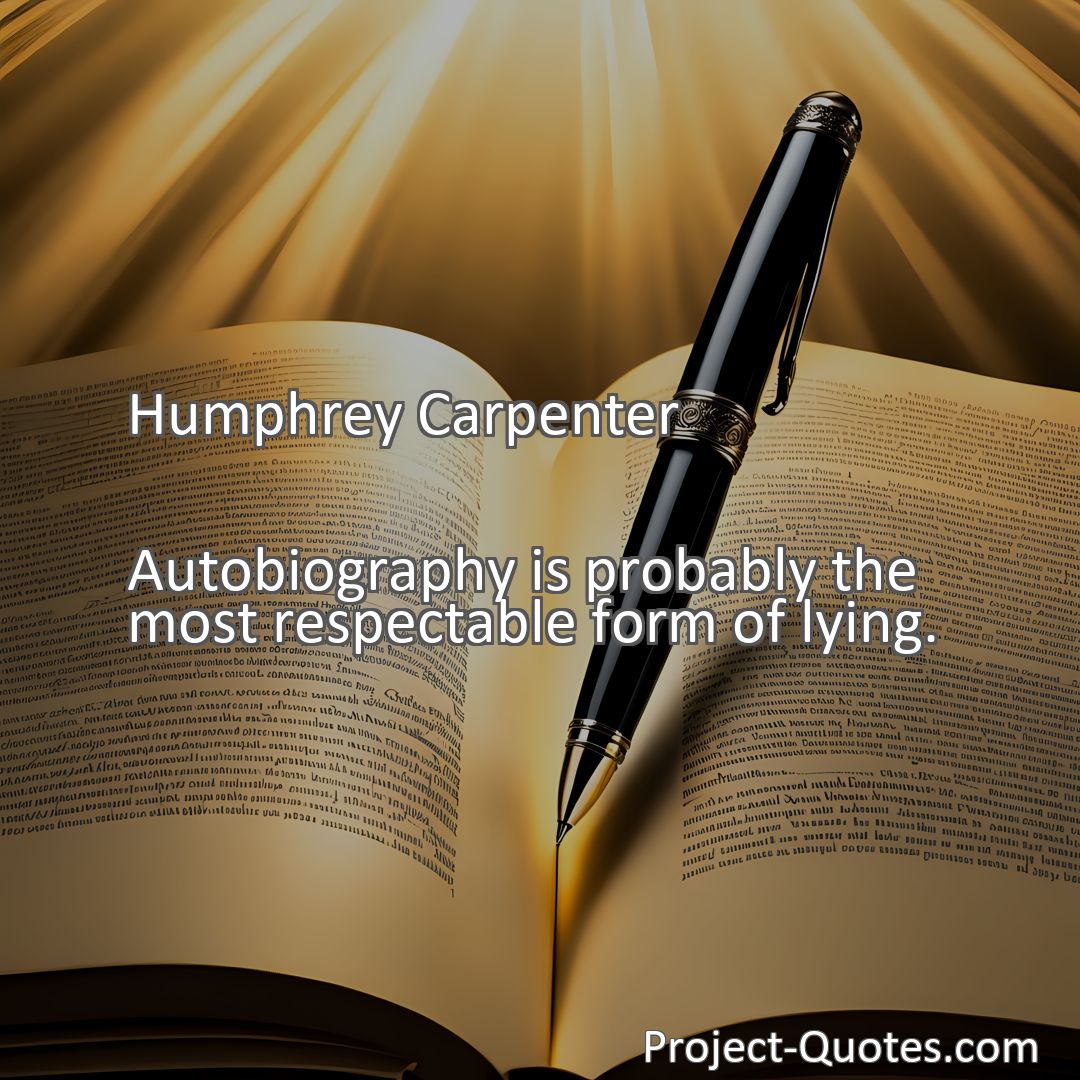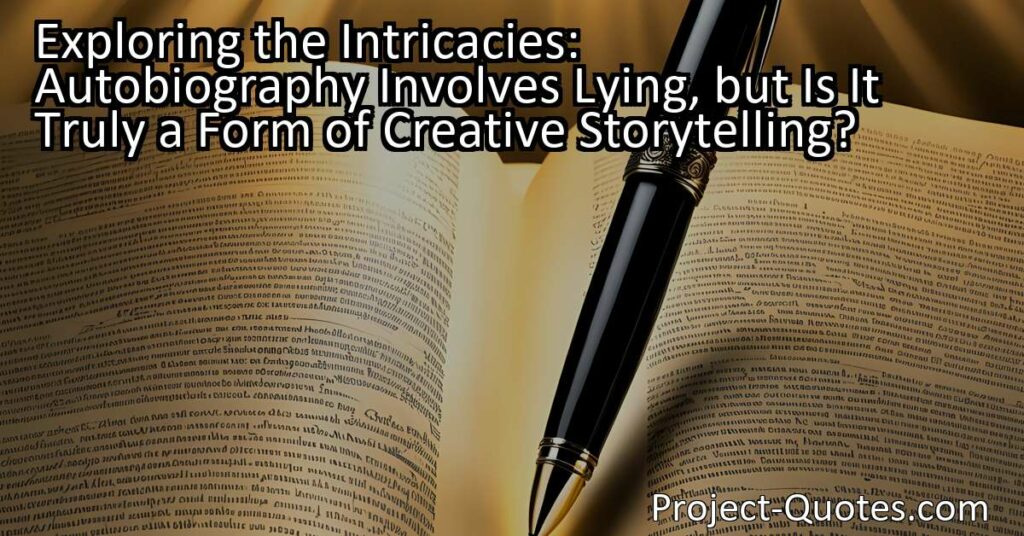Autobiography is probably the most respectable form of lying.
Humphrey Carpenter
Autobiography Involves Lying, but Is It Truly a Form of Creative Storytelling? Autobiographies, though often regarded as a truthful account, can involve the intentional distortion of facts to create a more captivating narrative. Authors add storytelling techniques, shaping the story to meet readers’ expectations and evoke emotions. While some discrepancies may unintentionally misrepresent facts, by acknowledging the presence of embellishments, readers can appreciate the value of autobiographies as a unique window into the human experience.
Table of Contents
Meaning of Quote – Autobiography is probably the most respectable form of lying.
Autobiography is a fascinating genre that allows individuals to tell their life stories in their own words. It offers a glimpse into the experiences, thoughts, and emotions that have shaped a person’s identity. While one might assume that autobiographies are always a reliable source of truth, it is not uncommon to find authors bending the truth or embellishing their stories. This leads to the intriguing notion that autobiography, despite its respected status, can be seen as a form of lying.
When we hear the word “lying,” negative connotations often come to mind. However, in the context of autobiography, the term takes on a different meaning. It refers to the intentional distortion of facts or events to create a more captivating narrative. Authors may choose to omit certain details or exaggerate others to make their stories more appealing to readers. By doing so, they transform their autobiographies into works of fiction rather than strictly non-fictional accounts.
Why would someone choose to “lie” in their autobiography? The answer lies in the desire to entertain, inspire, or connect with readers on a deeper level. Autobiographies that are completely devoid of any embellishments or fictional elements may risk becoming dry and uninteresting. By introducing some degree of storytelling techniques, authors can captivate readers and evoke emotions more effectively. Thus, the act of lying in autobiography can be seen as a creative tool used to enhance the overall reading experience.
Moreover, autobiographies are deeply subjective. They are influenced by the author’s memories, perceptions, and personal biases. As humans, our recollections of events are often colored by our emotions and experiences at the time. This subjectivity can lead to unintentional misrepresentation of facts and contribute to the perception that autobiographies are a form of lying. However, it should be noted that these discrepancies are not necessarily intentional falsehoods but rather a result of the intricacies of memory.
Another interesting aspect of autobiographies is the role of the audience. Authors are acutely aware of their readers’ expectations and motivations for reading their stories. They understand that readers seek inspiration, guidance, or a sense of connection with the author’s experiences. To fulfill these expectations, authors may feel compelled to craft a narrative that aligns with these desires. This can include shaping the portrayal of oneself, one’s achievements, and even the challenges faced, to fit the audience’s expectations. This act of tailoring the story to meet the readers’ needs could be seen as a form of lying, albeit a well-intentioned one.
Autobiographies also serve as a form of self-reflection and self-presentation. They allow authors to construct their identity and present themselves in a certain light. Just like in everyday life, people tend to emphasize their successes and downplay their failures when recounting their stories. In the realm of autobiography, this selective storytelling can be viewed as another form of lying. Authors strategically choose which aspects of their lives to include, omit, or exaggerate to shape the audience’s perception of their character.
Despite the notion that autobiography involves lying, it remains a highly respected genre. Autobiographies have the power to inspire, educate, and entertain readers. They provide a unique window into the lives of individuals, offering insight into the human experience. By acknowledging the presence of embellishments or distortions in autobiographies, readers can approach these texts with a more critical mindset while still appreciating the value they hold.
It is important to remember that not all autobiographies are created equal. Some authors are more transparent about their creative liberties, whereas others may leave readers questioning the accuracy of their stories. As readers, it is crucial to exercise discernment and consider the purpose behind each autobiography. Was it written purely to entertain, to inspire, or to inform? Acknowledging the intentions of the author can help us navigate the blurred lines between truth and fiction in autobiographical works.
In conclusion, the quote “Autobiography is probably the most respectable form of lying” offers an intriguing perspective on the genre. While autobiographies are often regarded as a truthful account of one’s life, it is important to question the extent to which they may be embellished or distorted. The act of “lying” in autobiography, whether intentional or unintentional, can be seen as a means to enhance the storytelling experience, tailor the narrative to the audience’s expectations, and present oneself in a desired light. By recognizing the presence of these literary devices, readers can approach autobiographies with a critical but appreciative mindset.
I hope this quote inspired image brings you hope and peace. Share it with someone who needs it today!


